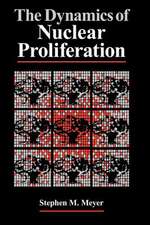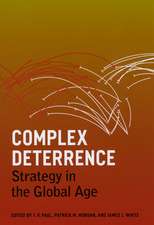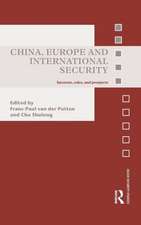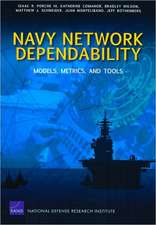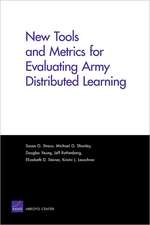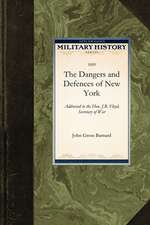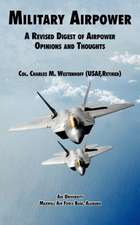The War Ledger
Autor A. F. K. Organski, Jacek Kugleren Limba Engleză Paperback – 15 aug 1981
The War Ledger provides fresh, sophisticated answers to fundamental questions about major modern wars: Why do major wars begin? What accounts for victory or defeat in war? How do victory and defeat influence the recovery of the combatants? Are the rules governing conflict behavior between nations the same since the advent of the nuclear era?
The authors find such well-known theories as the balance of power and collective security systems inadequate to explain how conflict erupts in the international system. Their rigorous empirical analysis proves that the power-transition theory, hinging on economic, social, and political growth, is more accurate; it is the differential rate of growth of the two most powerful nations in the system—the dominant nation and the challenger—that destabilizes all members and precipitates world wars.
Predictions of who will win or lose a war, the authors find, depend not only on the power potential of a nation but on the capability of its political systems to mobilize its resources—the "political capacity indicator." After examining the aftermath of major conflicts, the authors identify national growth as the determining factor in a nation's recovery. With victory, national capabilities may increase or decrease; with defeat, losses can be enormous. Unexpectedly, however, in less than two decades, losers make up for their losses and all combatants find themselves where they would have been had no war occurred.
Finally, the authors address the question of nuclear arsenals. They find that these arsenals do not make the difference that is usually assumed. Nuclear weapons have not changed the structure of power on which international politics rests. Nor does the behavior of participants in nuclear confrontation meet the expectations set out in deterrence theory.
The authors find such well-known theories as the balance of power and collective security systems inadequate to explain how conflict erupts in the international system. Their rigorous empirical analysis proves that the power-transition theory, hinging on economic, social, and political growth, is more accurate; it is the differential rate of growth of the two most powerful nations in the system—the dominant nation and the challenger—that destabilizes all members and precipitates world wars.
Predictions of who will win or lose a war, the authors find, depend not only on the power potential of a nation but on the capability of its political systems to mobilize its resources—the "political capacity indicator." After examining the aftermath of major conflicts, the authors identify national growth as the determining factor in a nation's recovery. With victory, national capabilities may increase or decrease; with defeat, losses can be enormous. Unexpectedly, however, in less than two decades, losers make up for their losses and all combatants find themselves where they would have been had no war occurred.
Finally, the authors address the question of nuclear arsenals. They find that these arsenals do not make the difference that is usually assumed. Nuclear weapons have not changed the structure of power on which international politics rests. Nor does the behavior of participants in nuclear confrontation meet the expectations set out in deterrence theory.
Preț: 289.96 lei
Nou
Puncte Express: 435
Preț estimativ în valută:
55.49€ • 57.72$ • 45.81£
55.49€ • 57.72$ • 45.81£
Carte tipărită la comandă
Livrare economică 14-28 aprilie
Preluare comenzi: 021 569.72.76
Specificații
ISBN-13: 9780226632803
ISBN-10: 0226632806
Pagini: 299
Dimensiuni: 140 x 216 x 20 mm
Greutate: 0.4 kg
Ediția:Revised
Editura: University of Chicago Press
Colecția University of Chicago Press
ISBN-10: 0226632806
Pagini: 299
Dimensiuni: 140 x 216 x 20 mm
Greutate: 0.4 kg
Ediția:Revised
Editura: University of Chicago Press
Colecția University of Chicago Press
Notă biografică
A. F. K. Organski is professor of political science at the University of Michigan. Jacek Kugler is professor of political science at Vanderbilt University. They are the coauthors, with J. Timothy Johnson and Youssef Cohen, of Births, Deaths, and Taxes: The Demographic and Political Transitions, also published by the University of Chicago Press.
Cuprins
Acknowledgments
Introduction
Of Power
Of Size and Growth
Of Nuclear Weapons
Plan of the Book
1. Causes, Beginnings and Predictions: The Power Transition
Three Models
Comparison of the Three Models
Preparation for the Testing of a Model
Empirical Tests of the Power-Distribution Models
Conclusion
2. Davids and Goliaths: Predicting the Outcomes of International Wars
Power Indicators: Existing Measures
The Missing Measure of Political Development
Construction of a Measure of Political Development
An Index of Governmental Extraction
A New Measure of National Capabilities
Tests, Hypotheses, and Findings
Conclusion
3. The Costs of Major Wars: The Phoenix Factor
Theoretical Propositions
Indexing National Capabilities or Power Resources
Estimating Consequences of War
Choice of Test Cases
Actors
Empirical Propositions
Findings
The Phoenix Factor
Conclusion
4. Nuclear Arms Races and Deterrence
Deterrents and Deterrence
Testing Deterrence: Outcomes of Crisis
Testing Mutual Deterrence: The Nuclear Arms Race
Conclusion
5. Conclusion
A Note on Architecture
Major Wars: Beginnings
Predictions of War Outcomes
The Phoenix Factor
Deterrence and Arms Races
Beyond the Data
Appendix 1: Index of Political Development
Appendix 2: Postwar American Aid
Appendix 3: Analysis of Models
Notes
Bibliography
Index
Introduction
Of Power
Of Size and Growth
Of Nuclear Weapons
Plan of the Book
1. Causes, Beginnings and Predictions: The Power Transition
Three Models
Comparison of the Three Models
Preparation for the Testing of a Model
Empirical Tests of the Power-Distribution Models
Conclusion
2. Davids and Goliaths: Predicting the Outcomes of International Wars
Power Indicators: Existing Measures
The Missing Measure of Political Development
Construction of a Measure of Political Development
An Index of Governmental Extraction
A New Measure of National Capabilities
Tests, Hypotheses, and Findings
Conclusion
3. The Costs of Major Wars: The Phoenix Factor
Theoretical Propositions
Indexing National Capabilities or Power Resources
Estimating Consequences of War
Choice of Test Cases
Actors
Empirical Propositions
Findings
The Phoenix Factor
Conclusion
4. Nuclear Arms Races and Deterrence
Deterrents and Deterrence
Testing Deterrence: Outcomes of Crisis
Testing Mutual Deterrence: The Nuclear Arms Race
Conclusion
5. Conclusion
A Note on Architecture
Major Wars: Beginnings
Predictions of War Outcomes
The Phoenix Factor
Deterrence and Arms Races
Beyond the Data
Appendix 1: Index of Political Development
Appendix 2: Postwar American Aid
Appendix 3: Analysis of Models
Notes
Bibliography
Index


